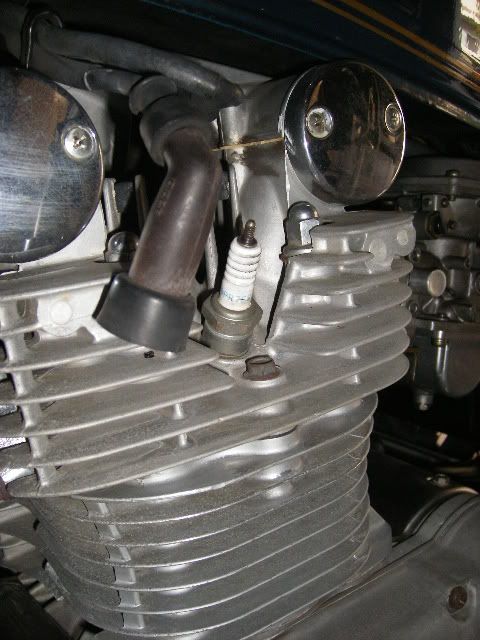No tractor stores round here... not that I know of anyway.
Can someone tell me which of the two sets will do the job? The copper core Dyna 7mm or the suppression core dyna 7mm. They are both on the links above.
They come with boots but I could go for the NGK resistor ones if really necessary (added cost) & add them on but I've read there needs to a be a resistor at both ends... is this the case? If so is there one in the OEM coil already??
CARBON (SUPPRESSION) CONDUCTORS
Carbon conductors are used in original equipment ignition wires by most vehicle manufacturers, and in the majority of stock replacement wires. This style of ignition wire is cheap to manufacture and generally provides good suppression for both RFI (radio frequency interference) and EMI (electromagnetic interference). Conductor usually consists of a substrate of fiberglass and/or Kevlar over which high-resistance conductive latex or silicone is coated, and functions by reducing spark current (by resistance) to provide suppression — a job it does well while the conductor lasts. Vehicle manufacturers treat ignition wires as service items to be replaced regularly, and limited life is never an issue. This type of conductor quickly fails (burns out) if a high-powered aftermarket ignition system is used.
EMI (electromagnetic interference)
EMI from spark plug wires can cause erroneous signals to be sent to engine management systems and other on-board electronic devices used on both racing and production vehicles in the same manner as RFI (radio frequency interference) can cause unwanted signals to be heard on a radio receiver. Engine running problems ranging from intermittent misses to a dramatic loss of power can result when engine management computers receive signals from sensors that have been altered by EMI emitted from spark plug wires. This problem is most noticeable on modern production vehicles used for commuting where virtually every function of the vehicle's drive train is managed by a computer. For many reasons, the effect of EMI on engine management computers is never predicable, and problems do become worse on production vehicles as sensors, connectors and wiring deteriorate and corrosion occurs. The problem is often exacerbated by replacing the original ignition system with a high-output system.
SOLID CORE CONDUCTOR WIRES
Solid metal (copper, tin-plated copper and/or stainless steel) conductor wires are still used in racing on carbureted engines, but can cause all sorts of running problems if used on vehicles with electronic ignition, fuel injection and engine management systems, particularly if vehicle is driven on the street — and damage to some original equipment and modern aftermarket electronic ignition and engine management systems can occur. Solid metal conductor wires cannot be suppressed to overcome EMI or RFI without the addition of current-reducing resistors at both ends of wires.
It's a 1980 1000G so electronic ignition...
Maybe I'll just give the store a ring
 that might be simpler!!
that might be simpler!!Cheers,
Dan

.png)

Comment